#african american history
Text
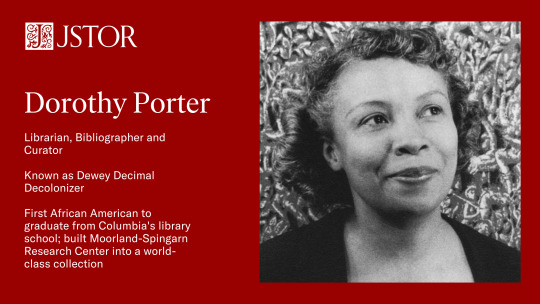
Dorothy Porter is known as the "Dewey Decimal Decolonizer."
Dorothy Porter was an African American librarian who worked to challenge and decolonize library systems, including the Dewey Decimal System, which traditionally marginalized non-Western perspectives and cultures. She advocated for more inclusive classification systems that better represented diverse voices and histories.
Porter's work emphasized the importance of equity and representation within library collections, aiming to create spaces that reflect the richness and complexity of human experiences. Her efforts have contributed to ongoing discussions and actions toward decolonizing library practices worldwide.
Read more about Dorothy Porter here.
2K notes
·
View notes
Text

For the ppl in the back!!
#black tumblr#black history#black literature#black excellence#black community#civil rights#black history is american history#civil rights movement#equality#equal rights#black lives matter#black pride#black people#equal#african slavery#american slavery#african american history#american history
2K notes
·
View notes
Text

Black history: Did you know?
Phillis Wheatley was only 12 when she became the first female African American author published.
Despite Phyllis Wheatley’s fame, we know surprisingly little about her early life. She was taken from her home in Africa when she was seven or eight, and sold to the Wheatley family in Boston. The family taught her to read and write, and encouraged her to write poetry as soon as they witnessed her talent for it. In 1773, Phyllis published her first poem, making her the first African American to be published. She was only 12 at the time.
Read more: https://www.poetryfoundation.org/poets/phillis-wheatley
#black excellence#black and proud#black americans#black history#black woman#black history month#black tumblr#black women#african america history#african american history
493 notes
·
View notes
Text

#black history month#black excellence#african american history#black heritage#celebrating black history#black culture#black leaders#civil rights#black achievements#black pride#historical legends#black lives matter#black empowerment#black history 365#trailblazers#black history facts#our history#black history celebration#empowering black voices.#021224
418 notes
·
View notes
Text
#talkin#tik tok#nikki.mov#food#recipes#civil war#emancipation proclamation#african american history#happy new years#black history
418 notes
·
View notes
Text
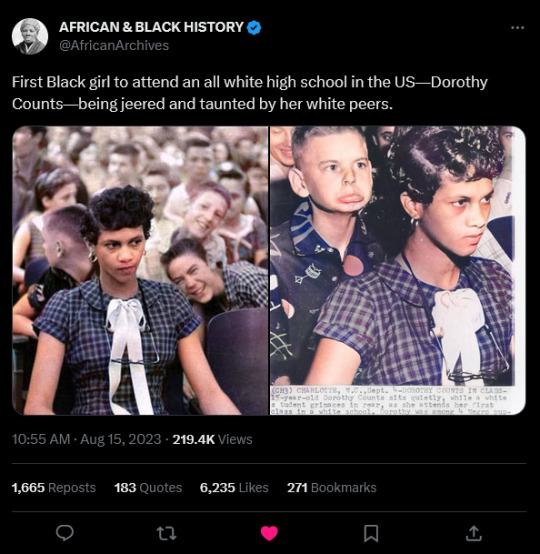
#blm#discrimination#defund the police#bipoc#black lives matter#civil rights#black lives fucking matter#lgbtqia#black lives movement#black lives have always mattered#black lives are important#black history#lgbtq#black liberation#african american history#civil rights movement#black community#civil war#civil liberties#black history month#black pride#black culture#black archives#black excellence
777 notes
·
View notes
Text
Beyond the Stars: Mae Jemison’s Odyssey ✨
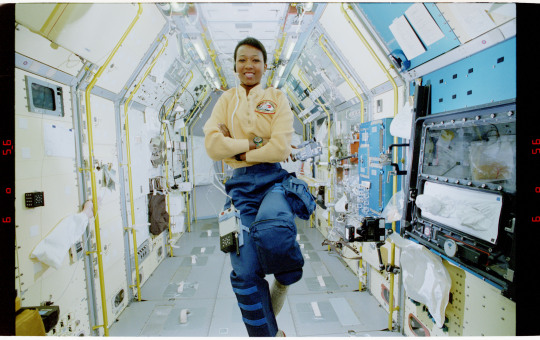
Happy Black History Month!
This Black History Month, we spotlight the extraordinary life of Dr. Mae Jemison, the first African American woman to travel in space. Born on October 17, 1956, in Decatur, Alabama, and raised in Chicago, Illinois, Jemison’s journey into the stars is a testament to the power of dreams and determination.

From an early age, Jemison showed a keen interest in science and space, but noticed the absence of women astronauts. She pursued her passion relentlessly, earning a B.S. in Chemical Engineering from Stanford University and an M.D. from Cornell Medical College. Before joining NASA, Jemison was a general practitioner and served in the Peace Corps in Sierra Leone and Liberia, where she managed health care for other volunteers.
In 1987, Jemison’s dream became reality when she was selected for NASA’s astronaut program. On September 12, 1992, aboard the Space Shuttle Endeavor on mission STS-47, Jemison became the first African American woman to travel in space, serving as a mission specialist. During her eight-day mission, she conducted experiments on weightlessness and motion sickness, contributing valuable data to the field.

Jemison’s honors include induction into the National Women’s Hall of Fame, the National Medical Association Hall of Fame, and the Texas Science Hall of Fame, among others. Her story is not just one of breaking barriers in space exploration, but also of inspiring generations to pursue their dreams, regardless of birth and obstacles.

For more information on Mae Jemison’s groundbreaking journey and contributions to science and humanity, the National Archives holds numerous resources that illuminate the lives and achievements of African American pioneers:
364 notes
·
View notes
Text
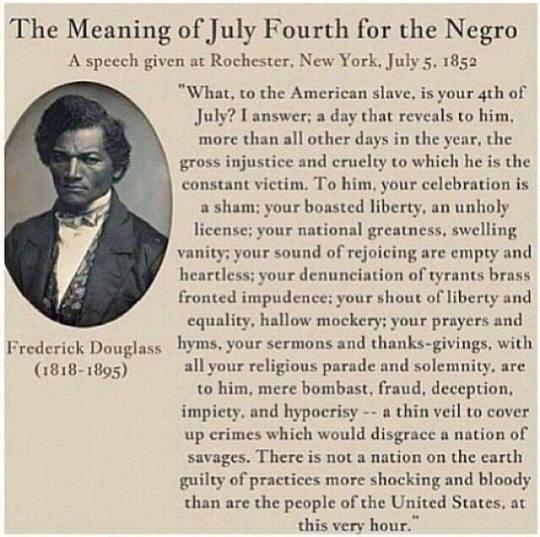
#african americans rights#african american history#underground railroad#slavery#civil war#black lives matter#civil rights movement#the narrative of the live of frederick douglass#frederick douglass#fourth of july
658 notes
·
View notes
Text

1924, A family in Harlem, New York City, photo by James Van Der Zee
#african#afrakan#kemetic dreams#brownskin#afrakans#africans#brown skin#african culture#african american#african american history#harlem#new york city#james van der zee
494 notes
·
View notes
Text
I think people shouldn't be allowed to look at an African American who complains about America and tell them to leave.
Why?
We were brought here against our will. We built this shit show and contributed to the culture. We suffered at the hands of EVERYONE else who happened to be here. Certain Native American tribes included. Uh-huh. We didn't forget.
Oh, and we're still being shot due to the "They're dangerous' stereotype. We're are forever fetishized.
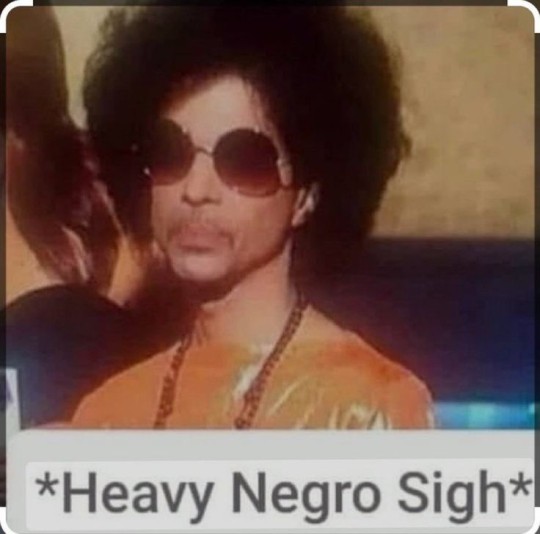
And even if we do leave the country, we're at the bottom of the barrel on this planet because we're black and AMERICAN!
Everyone legitimately dislikes us for whatever irrational reason. Whether it's because they think we're all gun happy druggies with no culture or because they think we're not well behaved and always rude. Promiscuous is what they see when they look at our women. It's despicable to me.
No matter where we go, we're gonna be treated the same, just in other places, they won't try to kill us, and it's less likely I'll turn up dead.
So no.
You don't get to tell me to leave. You can get your shit together and fix this mess you call a country and SAY THANK YOU!
#african american history#african american#african american culture#gullah geechee#black americans#black culture#black history#black people#black lives are precious#black lives matter
174 notes
·
View notes
Text

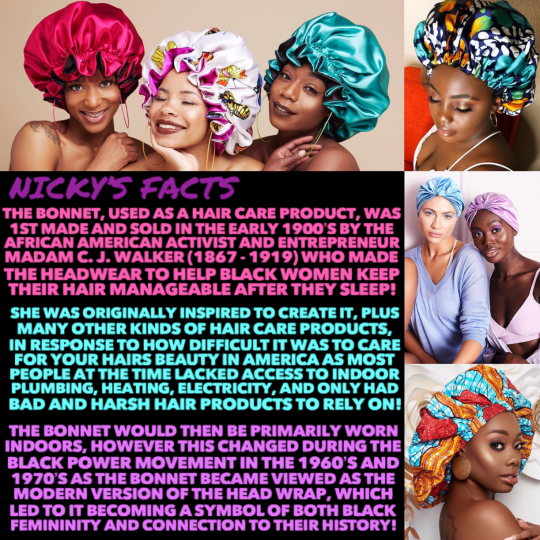
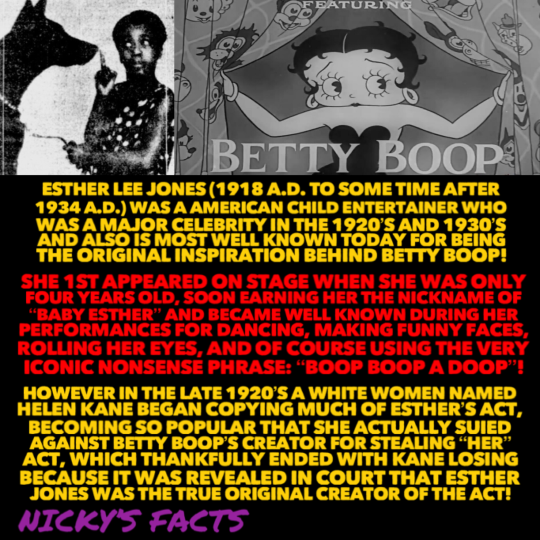

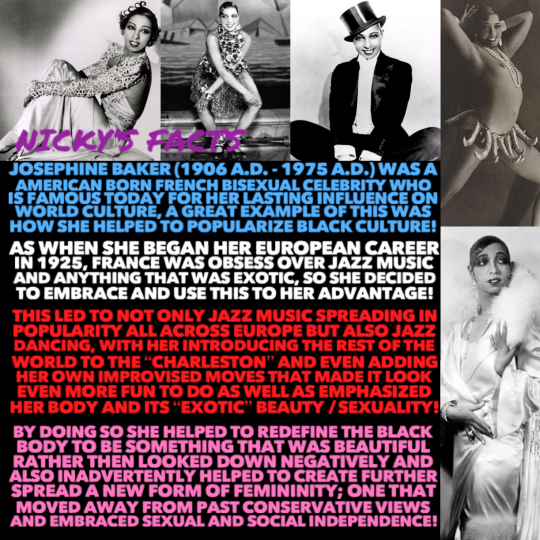
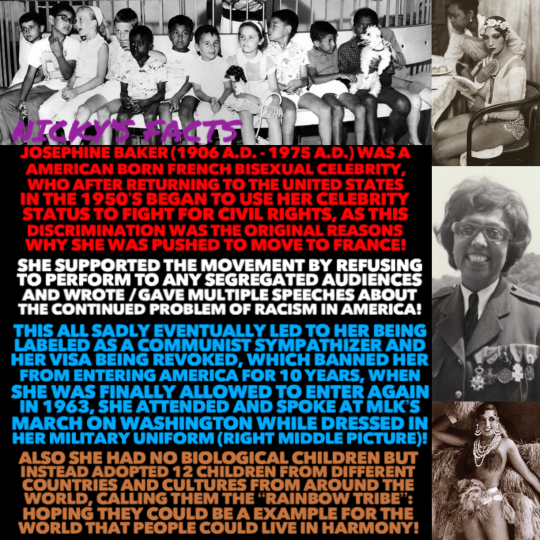
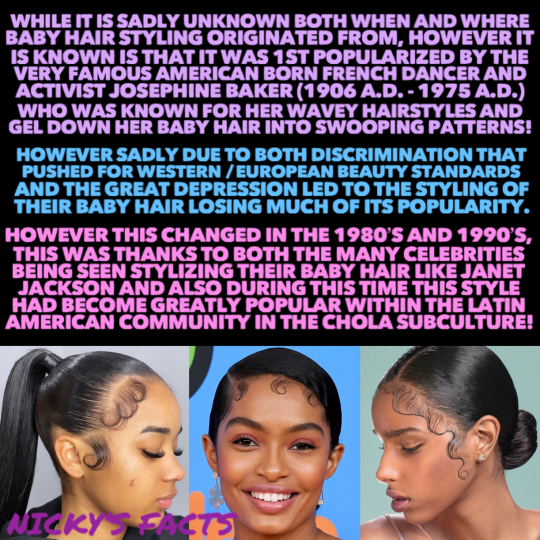
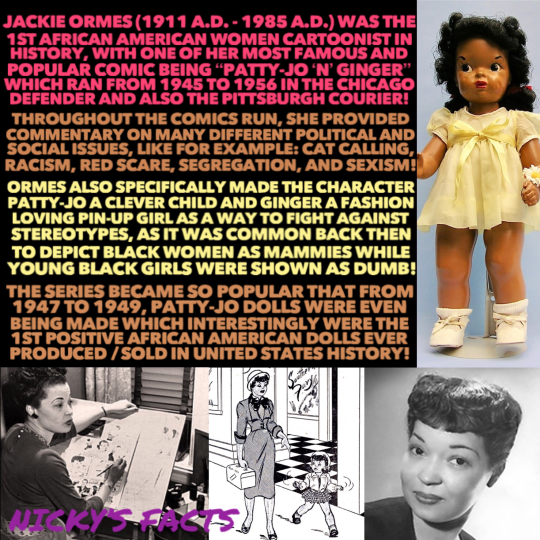
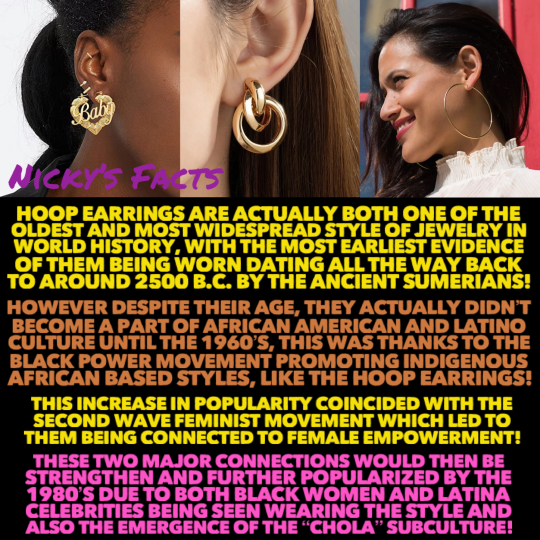
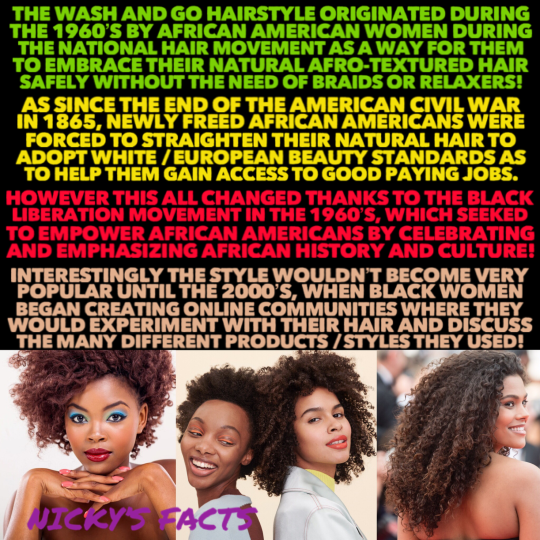
Happy Juneteenth!🤎
In celebration here are a collection of history facts on African American Women and their part in American history that sadly tends to be overlooked!
🤎💜🤎
#history#juneteenth#freedom day#black girl magic#black empowerment#black culture#american history#black excellence#african american history#black beauty#black femininity#nickys facts
450 notes
·
View notes
Text
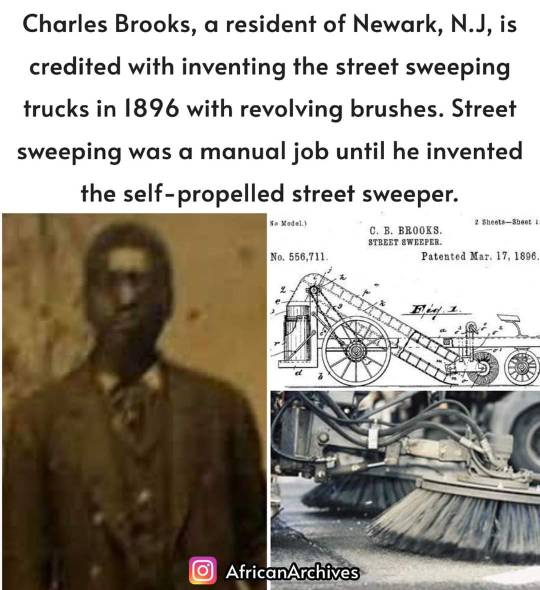
Charles Brooks, a resident of Newark, N.J, is credited with inventing the street sweeping trucks in 1896 with revolving brushes.
Street sweeping was a manual job until he invented the self-propelled street sweeper.
—Street sweeping was often a manual labor job in Brooks' time. Keeping in mind that horses and oxen were the main means of transportation — where there is livestock, there is manure. Rather than stray litter as you might see today in the street, there were piles of manure that needed to be frequently removed regularly. In addition, garbage and the contents of chamber pots would end up in the gutter.
The task of street sweeping was not carried out by mechanical equipment, but rather workers who roamed the street sweeping garbage up with a broom into a receptacle. This method clearly required a lot of labor, although it did provide employment.
#Charles Brooks#black inventor#self propelled#street sweeper#read more about him#reading is fundamental#knowledge is power#black history#african american history
255 notes
·
View notes
Text
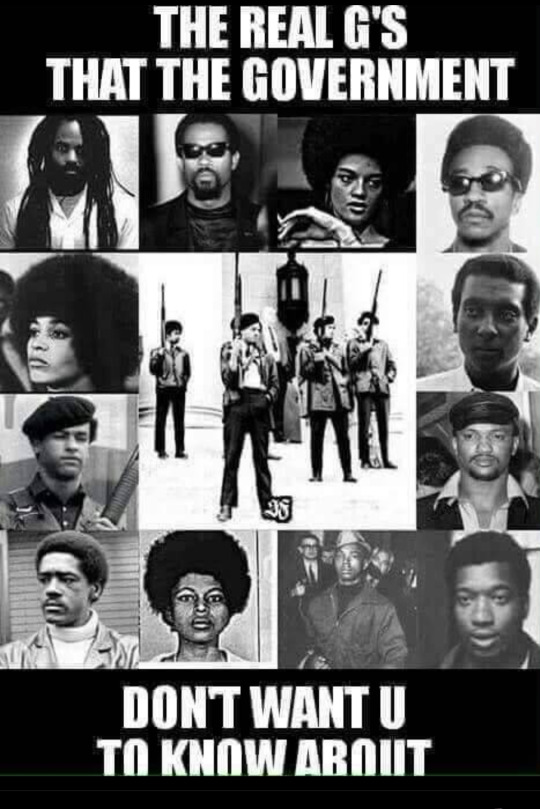
#black panther party#black panthers#black history#black tumblr#black literature#black excellence#black community#civil rights#black history is american history#civil rights movement#black girl magic#blackexcellence365#equal rights#black lives matter#black history matters#african american history#american history#american#black history month#black history facts
1K notes
·
View notes
Text

Black History Month: Did you know?
The three-light traffic signal was invented by a Black man named Garrett Morgan.
Garrett Morgan had only an elementary school education and was the son of a formerly enslaved man. Nevertheless, Morgan surmounted these difficulties and is responsible for many important inventions. Most notably, Morgan invented the three-light traffic signal in 1923.
While driving one day, Morgan witnessed a serious car crash at an intersection. This sparked his idea to add a third light to the traffic signal which would warn drivers of an impending red light. His patent was granted in 1924, and after early installments of the three-light traffic signal were successful, they spread throughout the country and became the three-light signal many of us encounter daily.
#black history matters#black excellence#black americans#black history#black history month#black tumblr#african america history#african american history
263 notes
·
View notes
Photo
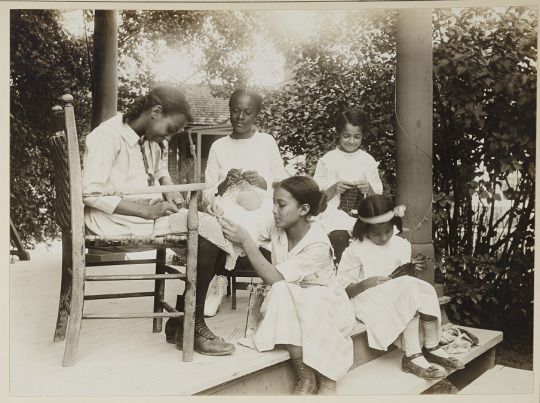
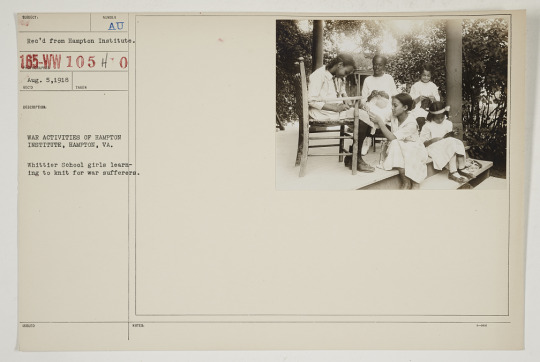
Students at Whittier School at the Hampton Institute (now Hampton University) learn to knit for the war effort. August 5, 1918.
Record Group 165: Records of the War Department General and Special Staffs
Series: American Unofficial Collection of World War I Photographs
File Unit: Colleges and Universities - Hampton Institute
Image description: Four girls and a young woman sit on a porch. Each has a ball of yarn on her lap and is knitting. They are all wearing light-colored dresses. The teaching institute and associated school were created to serve the Black community; all of the people in the photo are Black.
Transcription: WAR ACTIVITIES OF HAMPTON INSTITUTE, HAMPTON, VA. / Whittier School girls learning to knit for war sufferers.
#archivesgov#August 5#1918#1910s#World War I#WWI#Hampton University#HBCU#knitting#Black history#African American history
289 notes
·
View notes
Text
Hoodoo, Rootwork and Conjure sources by Black Authors
Because you should only ever be learning your ancestral ways from kinfolk. Here's a compilation of some books, videos and podcast episodes I recommend reading and listening to, on customs, traditions, folk tales, songs, spirits and history. As always, use your own critical thinking and spiritual discernment when approaching these sources as with any others.
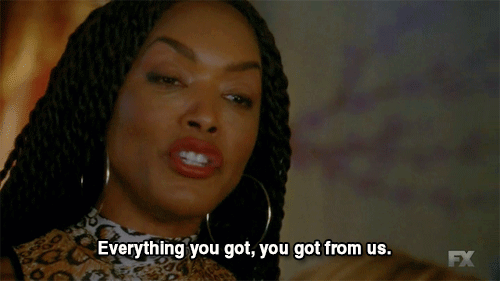
Hoodoo in America by Zora Neale Hurston (1931)
Mules and Men by Zora Neale Hurston (1936)
Tell my horse by Zora Neale Hurston (1938)
Let Nobody Turn Us Around: An African American Anthology by Manning Marable and Leith Mullings, editors (2003)
Black Magic: Religion and the African American Conjuring Tradition by Yvonne P. Chireau (2006)
African American Folk Healing by Stephanie Mitchem (2007)
Hoodoo Medicine: Gullah Herbal Remedies by Faith Mitchell (2011)
Mojo Workin': The Old African American Hoodoo System by Katrina Hazzard-Donald (2012)
Rootwork: Using the Folk Magick of Black America for Love, Money and Success by Tayannah Lee McQuillar (2012)
Talking to the Dead: Religion, Music, and Lived Memory among Gullah/Geechee Women by LeRhonda S. Manigault-Bryant (2014)
Working the Roots: Over 400 Years Of Traditional African American Healing by Michele Elizabeth Lee (2017)
Barracoon: The Story of the Last "Black Cargo" by Zora Neale Hurston (2018)
Jambalaya: The Natural Woman's Book of Personal Charms and Practical Rituals by Luisa Teish (2021)
African American Herbalism: A Practical Guide to Healing Plants and Folk Traditions by Lucretia VanDyke (2022)
youtube
youtube
youtube
youtube
These are just some suggestions but there's many many more!! This is by no means a complete list.
I recommend to avoid authors who downplay the importance of black history or straight out deny how blackness is central to hoodoo. The magic, power and ashé is in the culture and bloodline. You can't separate it from the people. I also recommend avoiding or at the very least taking with a huge grain of salt authors with ties to known appropriators and marketeers, and anyone who propagates revisionist history or rather denies historical facts and spreads harmful conspiracy theories. Sadly, that includes some black authors, particularly those who learnt from, and even praise, white appropriators undermining hoodoo and other african and african diasporic traditions. Be careful who you get your information from. Keeping things traditional means honoring real history and truth.
Let me also give you a last but very important reminder: the best teachings you'll ever get are going to come from the mouths of your own blood. Not a book or anything on the internet. They may choose to put certain people and things in your path to help you or point you in the right direction, but each lineage is different and you have to honor your own. Talk to your family members, to the Elders in your community, learn your genealogy, divine before moving forwards, talk to your dead, acknowledge your people and they'll acknowledge you and guide you to where you need to be.
May this be of service and may your ancestors and spirits bless you and yours 🕯️💀
#hoodoo#conjure#rootwork#black hoodoo authors#Youtube#hoodoo books#african american conjure#african american history#black history#black folklore#african american folklore#black magic#african american magic#witches of color#ATRs#Spotify
1K notes
·
View notes